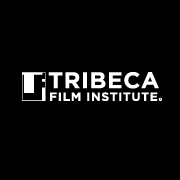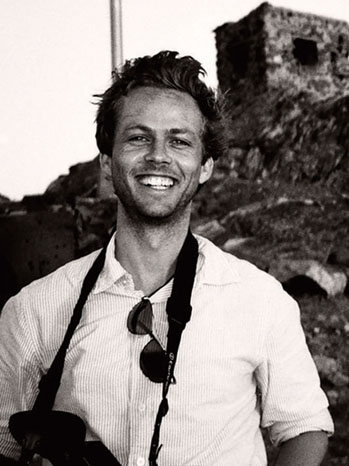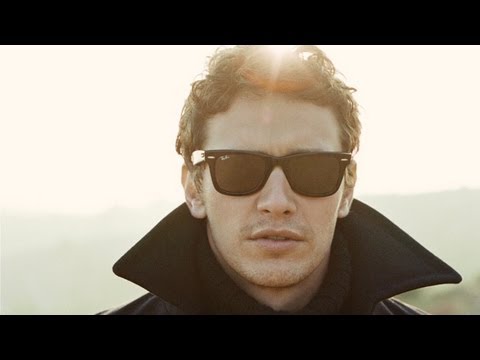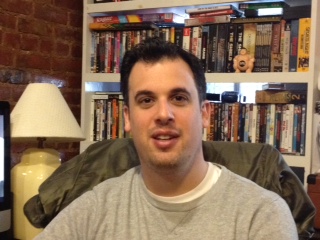Pro Tools
FILMFESTIVALS | 24/7 world wide coverage
Welcome !
Enjoy the best of both worlds: Film & Festival News, exploring the best of the film festivals community.
Launched in 1995, relentlessly connecting films to festivals, documenting and promoting festivals worldwide.
We are currently working actively to upgrade this platform, sorry for the inconvenience.
For collaboration, editorial contributions, or publicity, please send us an email here.
|

Online Dailies Coverage of the Tribeca Film Festival.

2015 Tribeca Film Festival Interview: Burhan Qurbani (Director/Writer - We Are Young. We Are Strong)

1992—the former East German city of Rostock is still coming to terms with the aftermath of the recent fall of the Berlin Wall. Youth unemployment is high, and migrant workers are housed in Soviet-era high-rises on the outskirts of the city. The Roma and a sizeable Vietnamese minority have become targets of the locals’ discontent, which escalates into hostility and violence during the course of one day.
Director Burhan Qurbani plunges us headfirst into this world and we watch events unfold through the eyes of Stefan, a youth intrigued by the local neo-Nazi movement; his father, Martin, an aging Social Democrat politician; and Lien, a Vietnamese factory worker. As generational, ideological, and racial tensions build, the camera swoops through the city bringing characters together and forcing them to see each other and their surroundings in a new light. All culminating in a night that will change the city forever. The tasteful black-and-white cinematography embraces the period setting while at the same time making each shot feel alive and bursting with an angry energy. The meandering camera and the intertwining narratives makes for a very visceral experienc
e.
At the Tribeca Film Festival 2015 we spoke with the film director Burhan Qurbani to talk about the social awareness behind the film, the importance to address the subject in today’s day and age, the cinematography choices and more.
To find more information on We Are Young. We Are Strong at the TFF 2015 - here

We are Young. We are strong is based on true events. What inspired you to tell this particular story?
I grew up in Germany, German is my language and I thought it was my country. When I was 11 years old these incidents happened, which was very disturbing, because it was normal people, who looked like my neighbors, not neo-Nazis, or fascists, who look like my friends and were attacking people like me.
For the first time I realized I am an alien, a foreigner in Germany. This feeling of being a stranger stayed with me. A couple of years later, in 2010, I just wanted to research, what happened there and we found nothing. There was almost no publications. I decided to do a film about it. My co-writer is from East Germany, I grew up in West Germany, so it was a good combination because he would have a very special view on this. We were lucky to develop the script in Jerusalem in the international film lab which was an amazing experience. Of course being in the Holy Land is already something, but we met great filmmakers who also inspired us to make a story which is not specifically for one place and one time in Rostock 1992, but something that is universal.
The film raises the xenophobia issue of course. Was this something you wanted to particularly address?
First of all, we tried to do a piece that would prevent these incidents to be forgotten, because my generation which is in the 30’s, barely remembers it, my German actors which are around the 20's, do not know about it at all. Secondly growing up in this time, being between 5 and 15 years old, I was so angry for being a stranger in the place I grew up. I was angry and afraid of people who’s hate I didn’t understand. I couldn’t understand why they hate me because I have slanted eyes and dark hair. I wanted to understand who is the person behind the violators. As long as I don’t get this person, I would always be afraid and I was fed-up of being afraid.
How was the audience reaction in Germany? Do you think this will raise awareness of an issue that is still present as of this day?
The cinematic release in Germany was in January. It seems to have hit a certain point, it’s still playing in the cinemas and we are in April. We still have this racist right wing movements, so I still think it can be part of discussion.
It was a very positive reaction, specially in Rostock where this happened. People were very moved, and the cinemas were full, which means the city has changed and they have a different awareness. 20 years later, Rostock is not the same city anymore but racism and xenophobia as you said is still an issue in Europe, or in the US. It’s still part of the society and part of the politics, that’s why we did this film. Our film also talks about human nature, it’s just a way how you trigger people. Joel Basnam always says that the most dangerous creature in the world is a young man between 15 and 25, because they have an extreme potential and power... If you channel it in the wrong way, it can lead to beating up foreigners, or young people in Syria fight for ISIS to an extreme destructive movement.
A question in my opinion you can raise in the film is, if you are acting this way because it is part of your nature or is the society, family education to blame.
Of course part of it is in you. The story we are telling is this young group of people who are ignored by their parents and they realize this new Germany that is reunited after 3 years they maybe have no place in this future, in this country. That is frustrating and nobody is listening to them. Later in the film when they pick up the stones and the Molotov cocktails is also a symbol of empowerment, they are making themselves heard in a terrible way. The film is a lot about how we should take our youth seriously. Right now being in a economical crises, this quest of identity, we have to take care of our youth and be aware.
In terms of the cinematography, the film starts in black & white and transitions to color. Can you speak more about the choices made?
If you see something in black & white you put it in the past and you have a safe distance from it. Emotionally and intellectually you can put it in a different place. The moment we changed into color we grabbed the audience and we wanted to pull them into the film also to the present, to reality. What ever you saw before is fiction but now, what you see is real, it happened and can happen again.
Also the life of these kids, they are bored and there is no spice in their life. They are not empowered. The moment it changes into coloring, the color also comes to their life, their energy finds a target.
The third reason, we wanted to make the film for cinema as an experience for the audience. Not only do we change the color, we change the sound, the music, pace of editing and the style of the camera. We wanted the audience to feel the enthusiasm of the people, the danger in which the Vietnamese refugees are. We wanted to make it a physical experience for the audience.
Can you talk about the casting process? The young actors are extremely talented and we also have a well known German actor, Devid Striesow, that plays the father of the troubled rioter.
With Devid, nobody thought he would be part of this low budget film. We sent him the script and he said he was going to do it because he is from the city of Rostock, he was there not one of the rioters but one of the protesters against the rioters. For him it was a personal thing to be part of the project, and he did an amazing job.
With the young ones, it’s really hard to finance political films in Germany, so we spent a lot of time fundraising. Since I was not the producer, the only thing I could do was to cast as much as possible, which I did a lot. We invited almost every young actor between the ages of 18 and 25 that we could get. We had them improvise a lot and after 6 months we really had the perfect group.
The most amazing thing was with the Vietnamese character, it’s really hard to find good Vietnamese actors in Germany. At a certain point we were so desperate that we asked our Vietnamese friends if they could ask their friends to come to the casting. Trang came in and she is doing her masters in economics at the university, she has never been in front of the camera. She blew us away. I think this only happens once in your career as a director to find this natural talent, and she was fearless. She came to the casting, rehearsals and on set and was doing her thing as if she had trained all her life.
Some of the young actors are quit famous and at no point her story or her acting is weaker within the others.
What made you decide We Are Young. We Are Strong for the title?
I was working on this short film 10 years ago that never got done about neo-Nazis, unemployed, are frustrated and at a certain point they get drunk and start to complain. Someone says: We might have no work; no saying whats happening here, but we are young. We are strong and we are the future. I took this quote and put it as a title. I see my young characters as being so powerful and nobody wants to hear it, therefore they explode in the face of the society.
What made you decide to be a director? Did this run in your family?
No. My parents are from Afghanistan so it was clear to become a doctor and work there. When I was 16 I realized my talent is in language and not in medicine. I was in the film academy in Baden-Württenberg, one of the most prestigious film schools in Europe. It was really by chance, because I had never worked in film and I applied more or less for fun, so I was very lucky.
— Interview conducted by L. Fietz
jungundstark.de
Facebook: /Wir-sind-jung-Wir-sind-stark
|
About Tribeca Film Festival
 Online Dailies Coverage of the Tribeca Film Festival, April 17-28, 2013
The Tribeca Film Festival brings together local, national, and international talent to provide the New York City, downtown community with five days of screenings, educational workshops, and various special events.
Live coverage with dailies from Lia Fietz, Suzanne Lynch, Claus Mueller, Maria Esteves
New York United States View my profileSend me a message
|

































